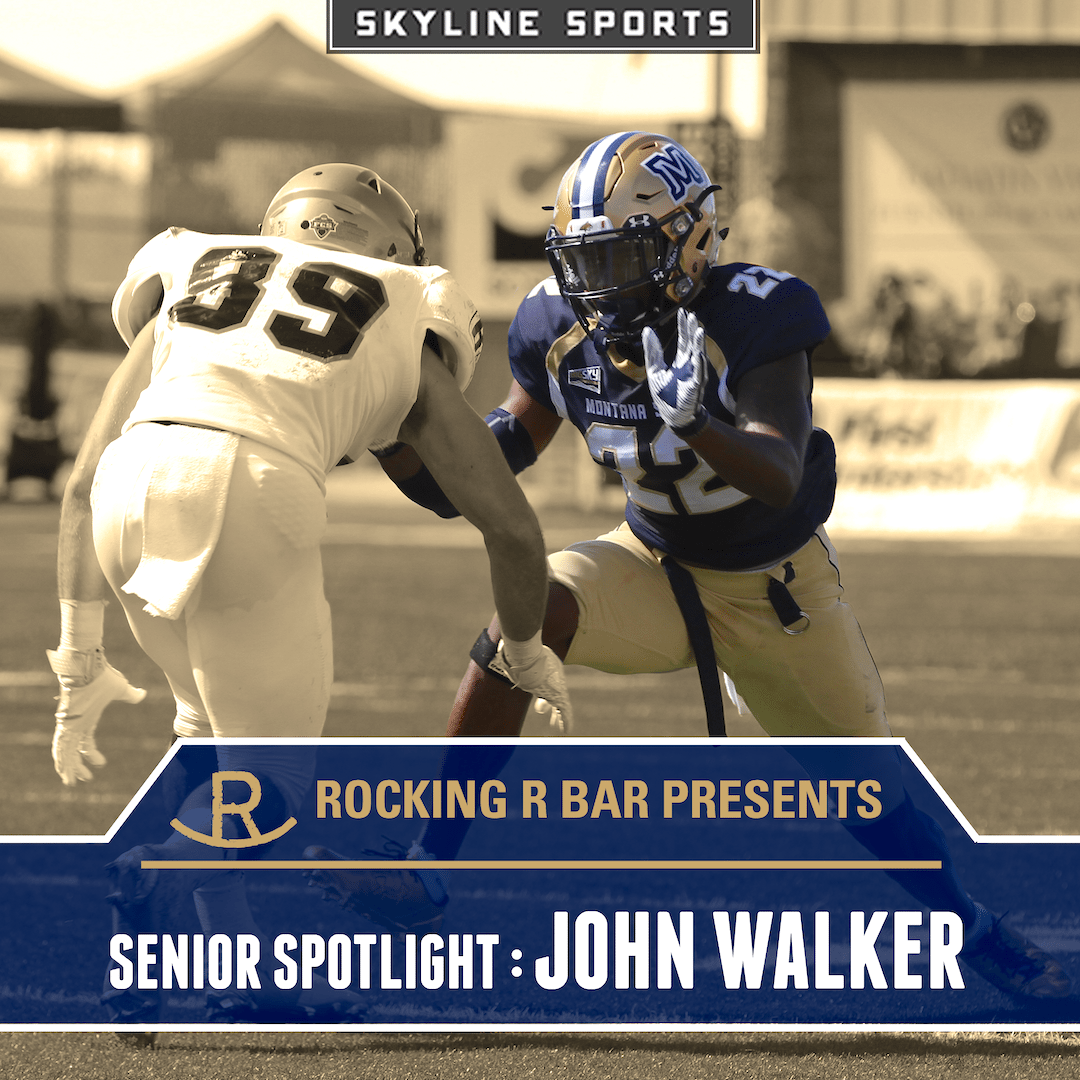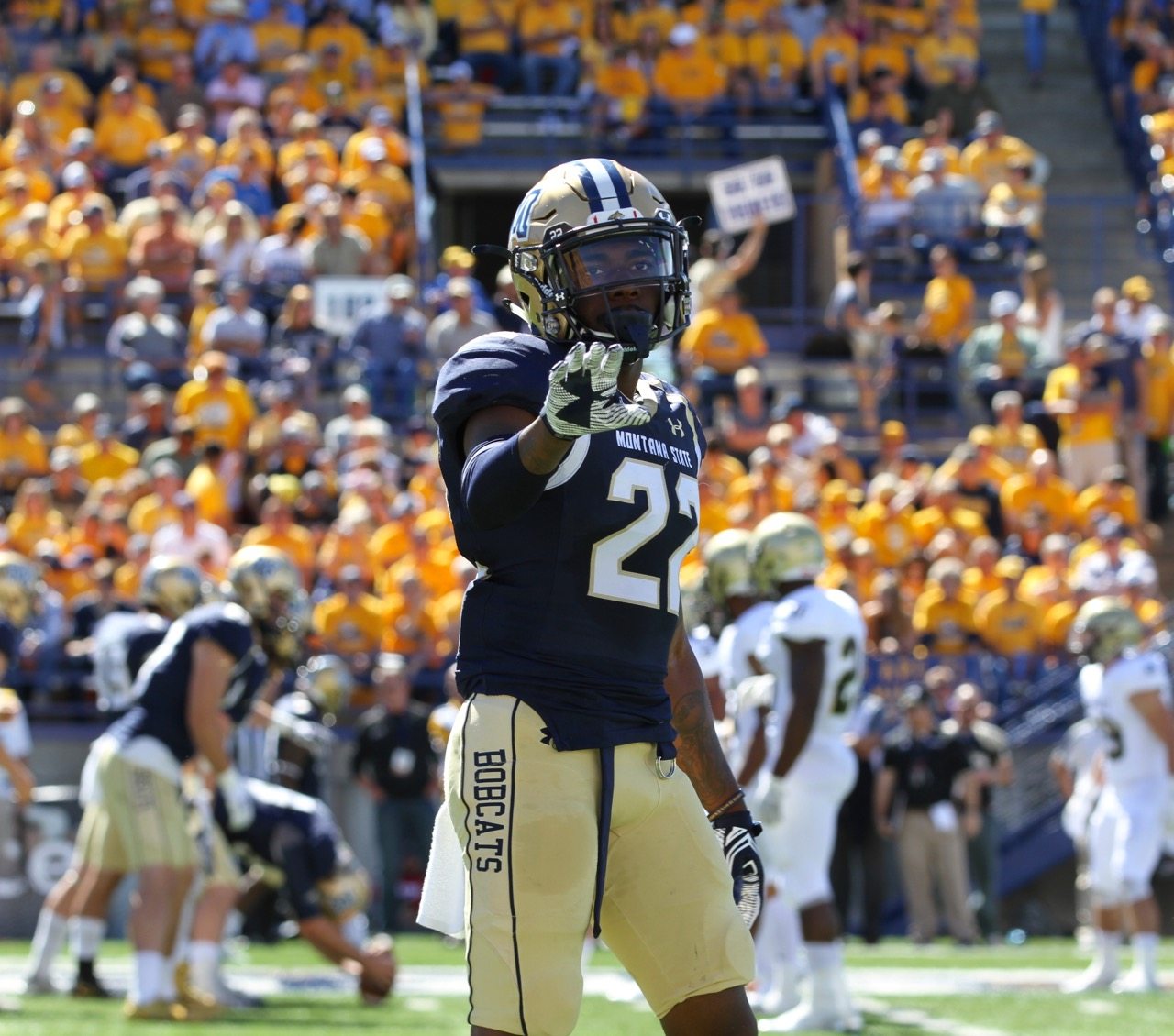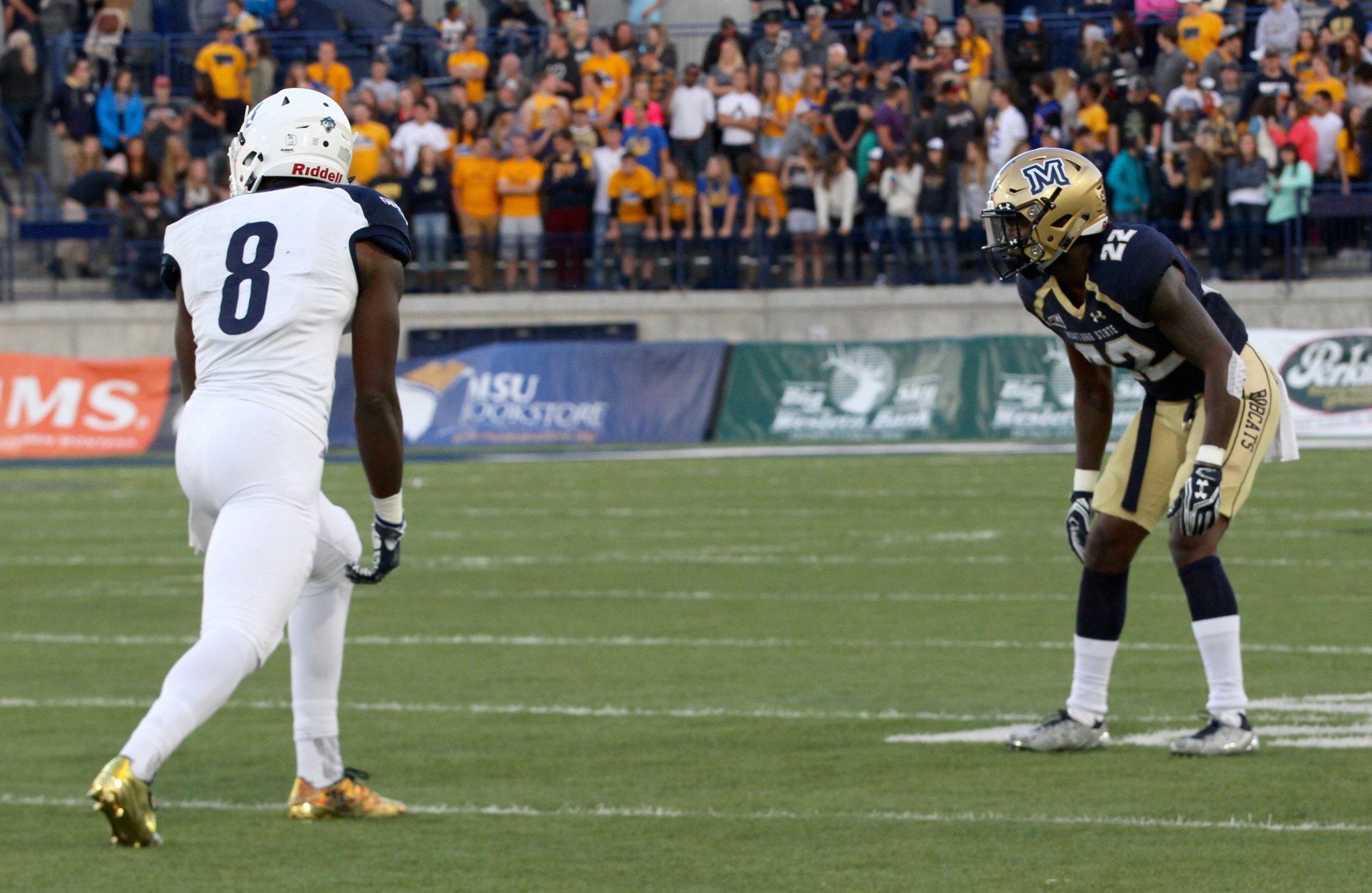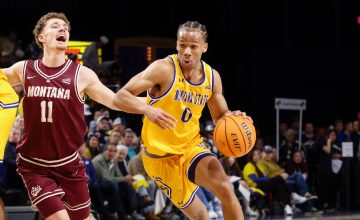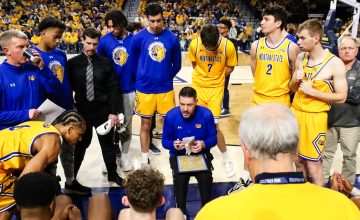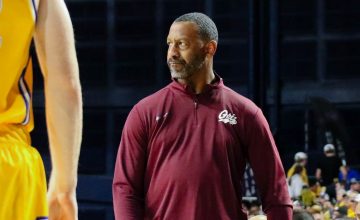As a boy, John Walker would ask his mother why he could not touch his father.
Walker would sit on the opposite side of the glass, staring at the man who shares his namesake. The older John Walker sat on the captive side of the window, shackled in chains, some days erupting in fits of rage fueled by his irreversible actions. The son remembered the father’s fits reaching the point he would beat on the bars of the cage that bound him, his emotions feeding off the reality that he would spend the rest of his life in prison for the murder he committed.
His mother Jamilah Walker would tell young John that his father was in the hospital. At four years old, he did not know any different. As he grew older, the boy knew something was not right. His father did not seem sick. Instead, he seemed trapped.
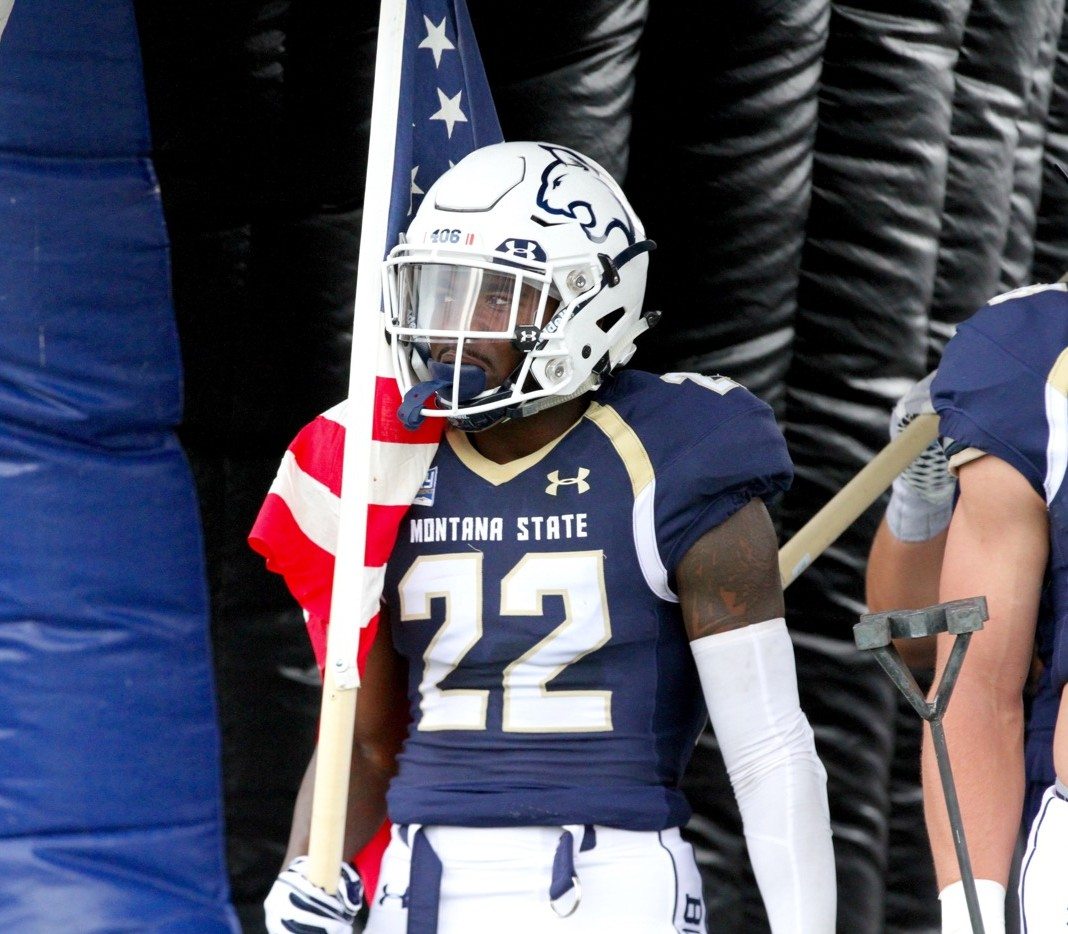 “As I got older, I didn’t believe he was sick,” Walker said earlier this week, the emotion of the memory still painted on his face as he stood in the north end-zone of Bobcat Stadium in Bozeman, Montana, a world away from his East Coast roots. “I would ask my mom, ‘Why can’t I touch him? When is he coming home?’ Then as I got older, my mom finally told me he wasn’t coming home.”
“As I got older, I didn’t believe he was sick,” Walker said earlier this week, the emotion of the memory still painted on his face as he stood in the north end-zone of Bobcat Stadium in Bozeman, Montana, a world away from his East Coast roots. “I would ask my mom, ‘Why can’t I touch him? When is he coming home?’ Then as I got older, my mom finally told me he wasn’t coming home.”
The actualization struck Walker to the core. He remembers acting out during class in elementary school. He remembers not having any ability to deal with the permanent nature of his realization. He remembers missing his father every single day.
“Once I found out what prison was, I had a hard time taking that on,” Walker said. “I really didn’t know how to deal with it. I still have problems with it today but I know how to deal with it now because I’m older and more mature and I understand what it is. There’s still times when I miss my dad.”
Walker grew up in the Paradise at Parkside apartments on Jay Street in Northeast Washington D.C. surrounded by violence. Temptations abounded and alertness dominated his mind as he navigated the streets. But Jamilah always put a high priority on academics, demanding John concentrate on his studies. Before transferring to H.D. Woodson High — a local powerhouse renowned for producing elite defensive backs — for his senior year, Walker attended Archbishop Carroll, a private Catholic high school.
Jamilah and Walker’s uncle, Dale Southerland— the man who became a central male figure in Walker’s life — knew well the enticements of material things. The elders knew the less than savory ways many young men in the projects go about acquiring such things. So if John ever wanted a new pair of shoes or some fresh clothes to wear to school, his mother or uncles would provide if only to keep him from falling through the cracks.
As the certainty of his father’s incarceration settled inside him, Walker began to grow. He saw the poverty that surrounded him. He saw the violence and the drugs and the crime and the dead ends. He and those closes to him — his cousin, De’Jon Wilson and his best friend, Kenneth Crawley — decided they wanted a different life. They decided their athletic talent would be their way out.
“I always knew I didn’t want to end up like that even though I had that around me and in my family,” Walker said. “I always felt like I was going to change the cycle of what was going on. I had football and basketball to do that. That took me off the streets and it also took my brothers and my uncles off the streets. Instead of them being on the streets, they would come watch me play.
“Now when I go home, they are so eager to know what’s going on and they see that I’m doing well and they know the street life is over for me. You only end up in jail or dead like that. I just want to be a positive impact for my family and those who come after me. I want to show them the path out even if it’s not the path I ever expected.”
The path has taken Walker from the projects to the Rocky Mountains. Walker’s journey has taken him from the crime-ridden inner city to Boulder, Colorado and now to Bozeman where he is a star for a Montana State team trying to find its footing.
Entering the final four-game stretch of 2016, Walker is tied for the Big Sky Conference lead with three interceptions. His ability to play man coverage and shut down elite receivers like Northern Arizona’s Emmanuel Butler has him on track to earn All-Big Sky honors. The graduate transfer who started nine games during four years in the Pac 12 at Colorado is getting what he wanted when he chose the Bobcats over North Dakota after a somewhat cloudy situation last summer: playing time and a chance to shine.
“He understands that you have to compete every play,” MSU head coach Jeff Choate said. “Coming from the Pac 12, he’s played against some really talented players and he knows there are no free downs in the secondary.”
“He has been a play-maker for us, which is great because we need guys to make plays,” added MSU defensive backs coach Gerald Alexander, himself a former NFL safety. “He plays big and he’s very competitive. He’s only 5-9 but you see him guard guys who are bigger than him and he plays big.”
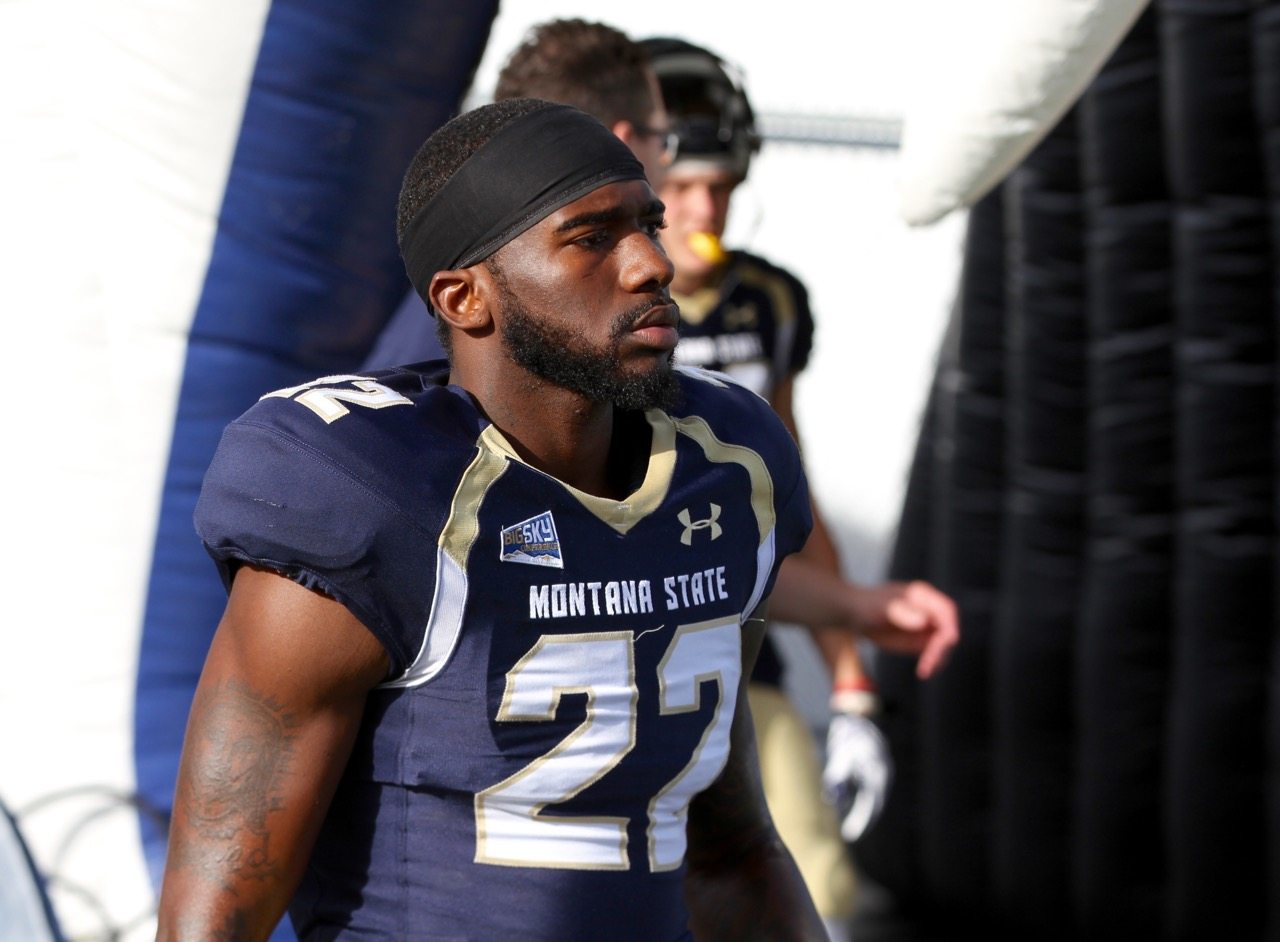 Walker ended up in Bozeman after four years of acclimation, strife, growth and missed opportunities during his time at CU. But Walker needed a meteoric rise as a prep senior to make it out of Northeast DC in the first place. During his two years at Archbishop Carroll, Walker primarily played quarterback. He had no scholarship offers following his junior year.
Walker ended up in Bozeman after four years of acclimation, strife, growth and missed opportunities during his time at CU. But Walker needed a meteoric rise as a prep senior to make it out of Northeast DC in the first place. During his two years at Archbishop Carroll, Walker primarily played quarterback. He had no scholarship offers following his junior year.
Crawley and Wilson, already stars at Woodson — a school in Ward 7, one of the roughest areas of the nation’s capital — pleaded with Walker for more than a year to transfer from Carroll. Crawley was thriving under the tutelage of defensive backs guru Wayne “Black” Johnson. Before he would let Walker join his secondary, Johnson had to see if he could play.
Observing Walker, Johnson noticed right away that Walker was smart, articulate and respectful. He noticed right away that he took his studies seriously and that he refused to be pulled in by the lure of the streets. He noticed right away that Walker had a high football lQ, playing with leverage and awareness of the situation. Once Johnson saw Walker’s footwork, he knew he could turn the prospect into a Power 5 player.
“John came in and separated himself,” Johnson said. “John played about seven games for us and ended up with five offers. Amazing.”
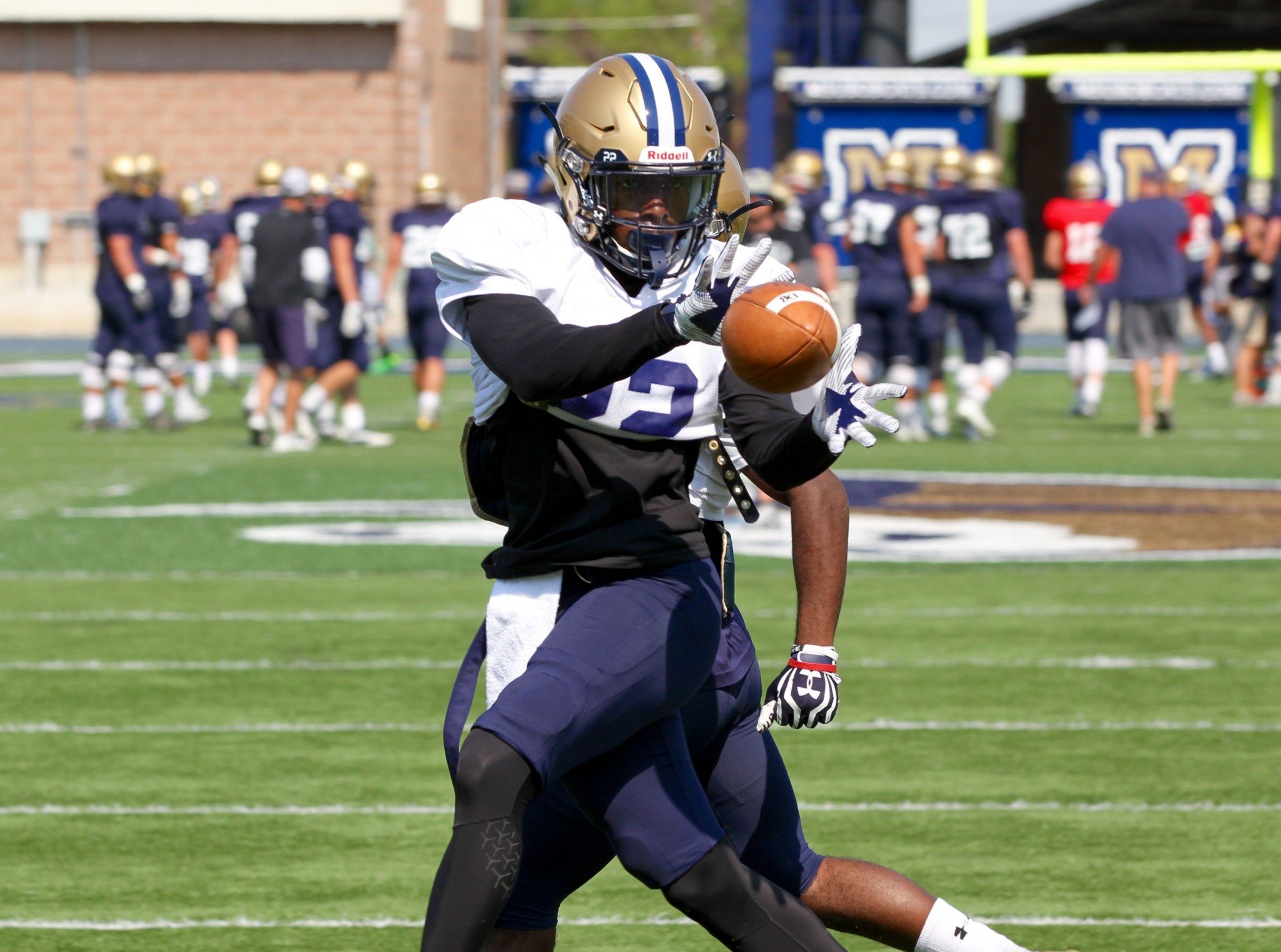 Walker earned scholarship offers from Kansas, Temple, Utah State, Northwestern and Colorado. His ability to navigate the circumstances in his life impressed Johnson as much as his ability to shut down receivers on the gridiron.
Walker earned scholarship offers from Kansas, Temple, Utah State, Northwestern and Colorado. His ability to navigate the circumstances in his life impressed Johnson as much as his ability to shut down receivers on the gridiron.
“He had the situation with his dad, the neighborhoods he grew up in, but his mother, she didn’t ever get caught up in it,” Johnson said. “His mom was a very good role model. His mother was a hard worker, diligent in working with her job and (nursing) school. She is a very strong woman in what she wanted in life. John being the only young man in the house with his father being incarcerated, his mother raised him strong.”
Walker remembers his mother working and going to school to become a registered nurse. He remembers his mother coming home late each evening without enough energy to cook dinner. Instead, she would go to sleep and wake up to do it all again.
“He grew up in tough times in the ghetto, but he kept his head on straight,” Johnson said. “Growing up in the neighborhood he grew up in was tough but his mom made sure he never wanted for anything. He wore the best clothes. His mom made sure she paid for that stuff so he wouldn’t have to be going outside trying to be a thuggish guy trying to sell drugs and all that stuff. She made sure he had it so he wouldn’t yearn for it and do something stupid to get it.”
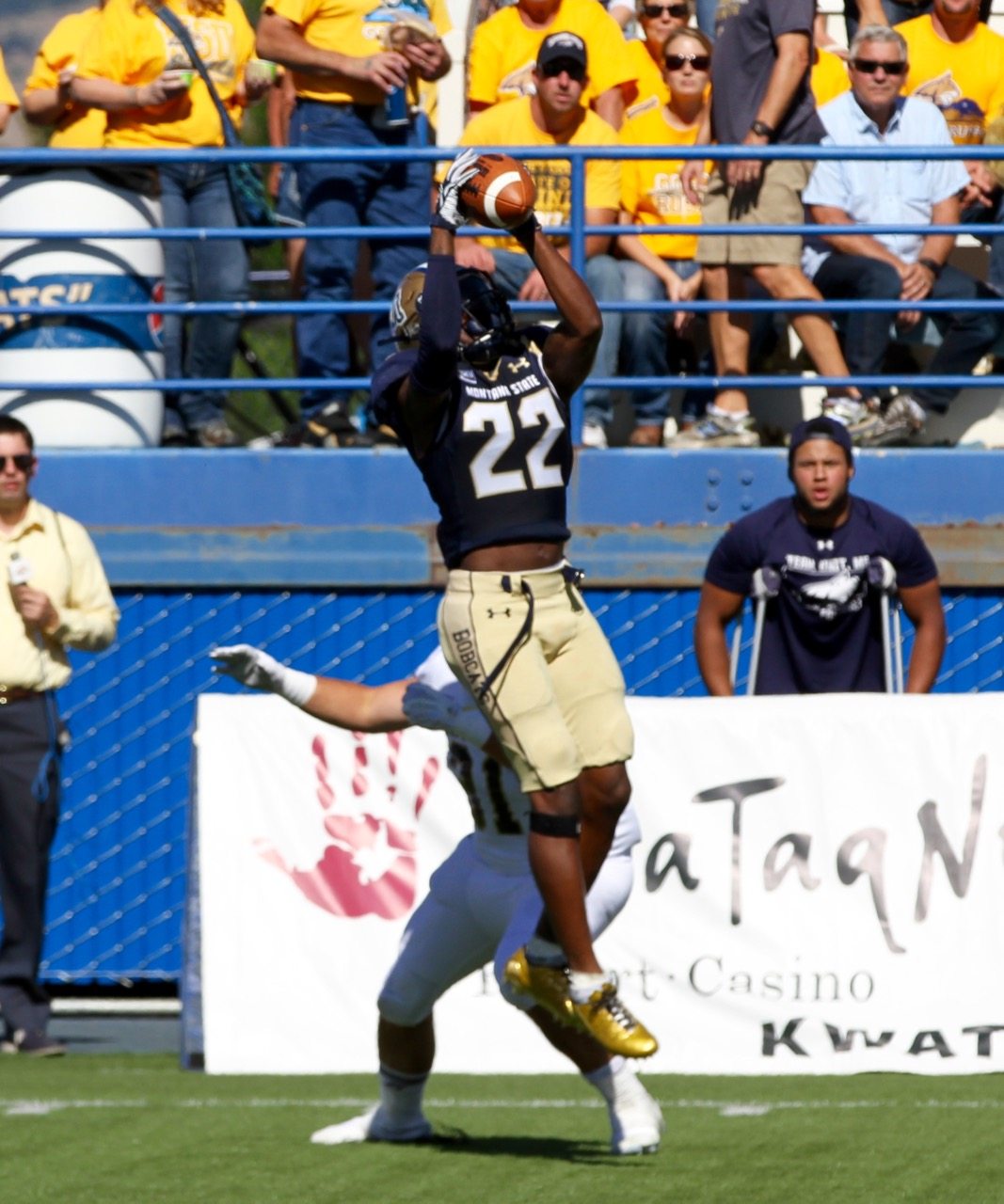 John Embree, an African American who coached for the Washington Redskins before taking Colorado’s head coaching gig in 2011, knew the prowess of defensive backs and football players overall produced by the Capital city, particular Woodson High. During his 27 years coaching, Johnson said he has helped 32 players earn their way into the NFL. Woodson’s most famous football alums include quarterback Byron Leftwich and wide receiver Josh Morgan. A total of 16 players from Woodson have been picked in the NFL Draft since 1973.
John Embree, an African American who coached for the Washington Redskins before taking Colorado’s head coaching gig in 2011, knew the prowess of defensive backs and football players overall produced by the Capital city, particular Woodson High. During his 27 years coaching, Johnson said he has helped 32 players earn their way into the NFL. Woodson’s most famous football alums include quarterback Byron Leftwich and wide receiver Josh Morgan. A total of 16 players from Woodson have been picked in the NFL Draft since 1973.
Embree remembered that prestige when assembling his first full recruiting class in Boulder. He reached out to Johnson, who helped guide Walker, Wilson and Crawley to CU.
“The three of them decided to go to Colorado and get out,” Johnson said.
Getting out meant getting thrown into a completely different domain. The trio, who would soon become known as the “DC3” to the CU coaching staff, were 1,700 miles away from home. Instead of the poverty of the projects, an affluent population surrounded them at the base of the foothills of the Rockies. Walker remembers thinking he had never seen cars so nice or houses so big. He also remembers thinking he never had been around people other than ones who looked like him.
Even though they had just gotten out, the trio contemplating going back to DC. Crawley, who is now a starter as a rookie for the New Orleans Saints, earned honorable mention All-Pac 12 honors as a true freshman in 2012. Walker suffered a severe cut to the flexor tendon in his hand and redshirted. The Buffs went 1-11 and Embree was fired after the season.
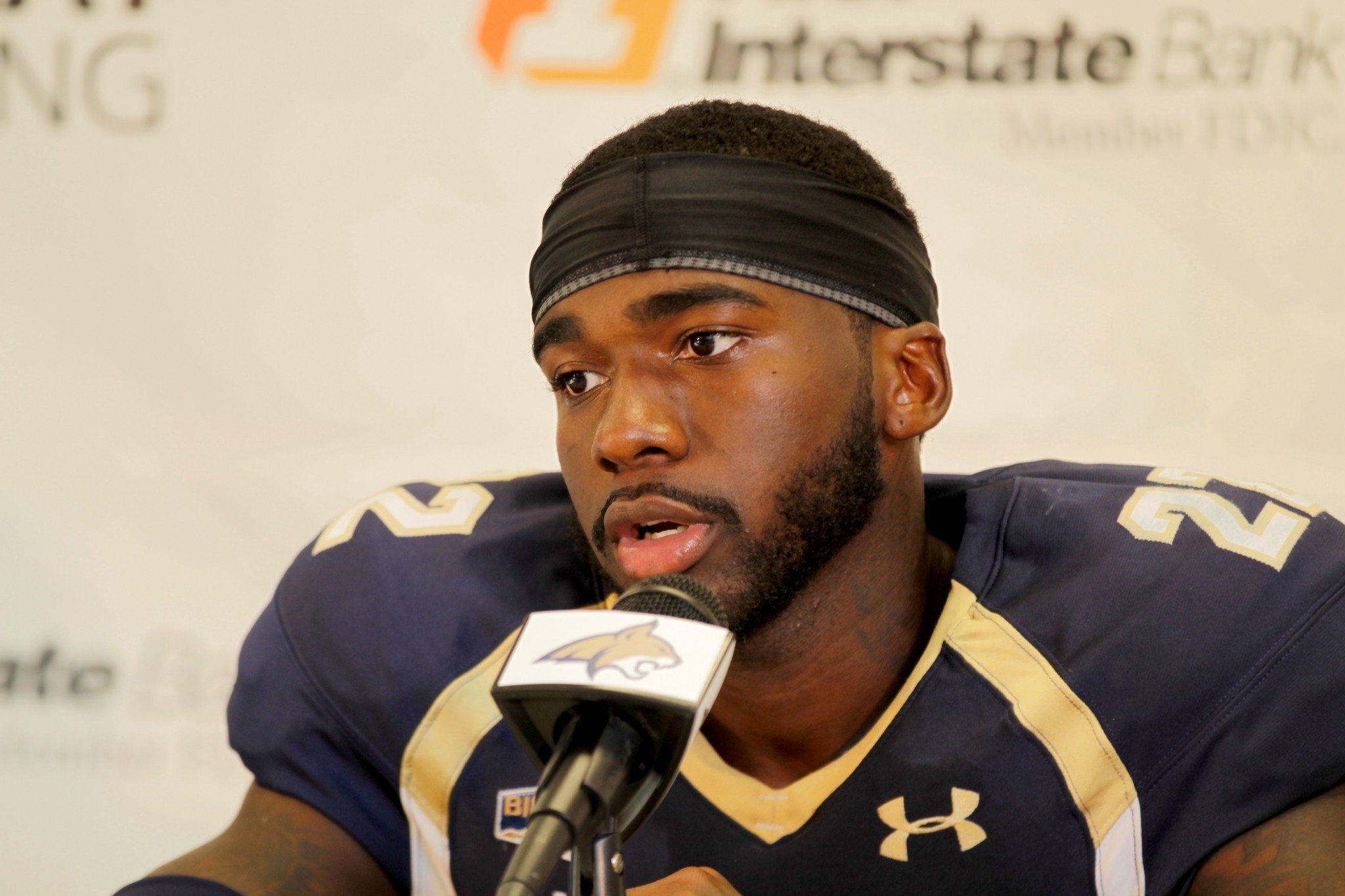 “When we first got there, we were going through it, man,” Walker remembers. “Coach Embree had just gotten fired. He was a black coach that brung us in. Going to school with no white people around, no white people in our neighborhood, we finally get out to Boulder, the dude who brought us out there who is supposed to comfort us and show us how to be around those situation, he get fired? We was all about to transfer on the spot.”
“When we first got there, we were going through it, man,” Walker remembers. “Coach Embree had just gotten fired. He was a black coach that brung us in. Going to school with no white people around, no white people in our neighborhood, we finally get out to Boulder, the dude who brought us out there who is supposed to comfort us and show us how to be around those situation, he get fired? We was all about to transfer on the spot.”
Montana State running backs coach Michael Pitre was a graduate assistant at CU beginning in the summer of 2012, the same summer the DC3 arrived on campus. Pitre took the trio under is wing, ensuring they completed the freshmen bridge program and helping them adapt. That following summer, he continued to mentor them when current Colorado head coach Mike MacIntyre took over.
“I commend those guys for just how they adjusted,” Pitre said on Tuesday. “It took some time but that’s a testament to their perseverance of dealing with different circumstances in life and being able to continue to mature.”
Boulder is 90 percent white and 0.4 percent African American according to the most recent U.S. census. By contrast, Ward 7 has 71,068 residents, 67,471 (95.9 percent) of which are African American. The median price for a single-family home in Boulder is $548,000. No such statistic exists for Ward 7 because of the prevalence of housing projects. The median household income in Boulder is $113,681. More than 40 percent of those who live in Ward 7 live below the poverty line.
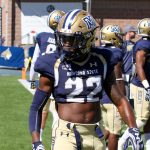 “In Boulder, we didn’t have a lot of friends,” Walker said. “White people didn’t talk to us. We felt like we went missing. You didn’t have a lot of dudes from our type of environment. It was a lot of dudes who come from privileged situations so they were used to being around white people in a community like that.
“In Boulder, we didn’t have a lot of friends,” Walker said. “White people didn’t talk to us. We felt like we went missing. You didn’t have a lot of dudes from our type of environment. It was a lot of dudes who come from privileged situations so they were used to being around white people in a community like that.
“What got us through was playing football with our team, which was really diverse.”
By their second winter in Boulder, Walker remembers his white teammates inviting the DC3 to parties. He remembers doing his best to break through his barriers.
“They realized we were just like them and we realized they were just like us,” Walker said. “Now living in Bozeman, I have more white friends than I ever would’ve imagined. I’m thankful for that opportunity. My uncles, people back in my community, if you asked them if they ever even had a conversation with a white person, they would tell you no, never, other than the police.”
The adjustment on the field came more easily. Walker started seven games as a sophomore in 2014, thriving at CU’s nickel back position. He had a standout spring in 2015 but never could break through on the depth chart again. He played in just five games last fall, primarily on special teams, prompting him to seek a new opportunity. The Woodson High salutatorian earned his sociology degree from Colorado last May, opening up the door to explore graduate transfer options.
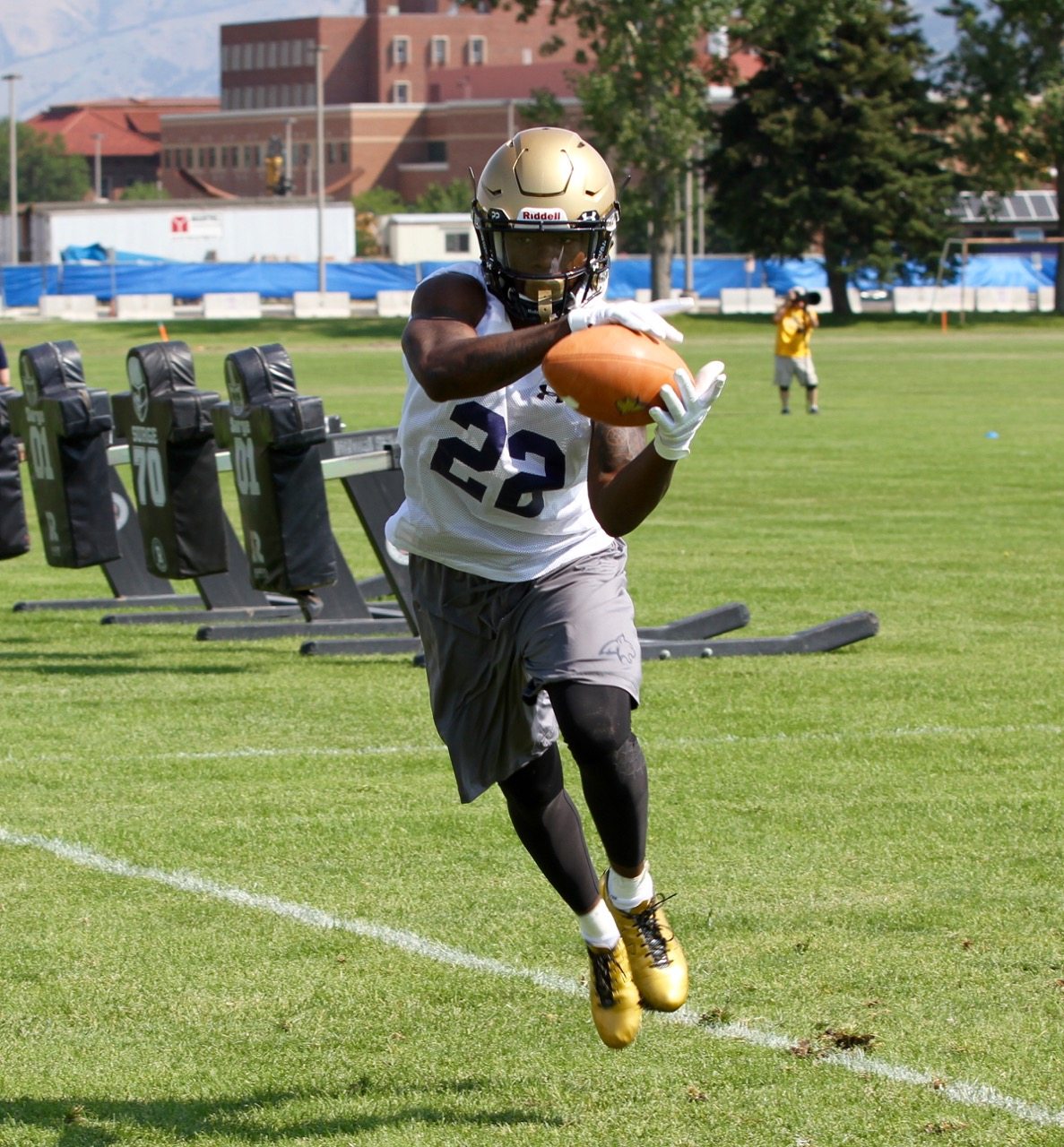 The connection with Pitre plus the opportunity to play for Alexander, a former All-American at Boise State and a second-round draft pick in 2007, helped lead Walker to Montana State. An issue with his acceptance into graduate school at MSU derailed becoming a Bobcat for a moment and he almost ended up at UND. Once Choate ironed out the issue, Walker arrived in Bozeman in July. He has stood out on MSU’s revamped defense ever since despite Montana State’s current four-game losing streak with Eastern Washington in town on Saturday.
The connection with Pitre plus the opportunity to play for Alexander, a former All-American at Boise State and a second-round draft pick in 2007, helped lead Walker to Montana State. An issue with his acceptance into graduate school at MSU derailed becoming a Bobcat for a moment and he almost ended up at UND. Once Choate ironed out the issue, Walker arrived in Bozeman in July. He has stood out on MSU’s revamped defense ever since despite Montana State’s current four-game losing streak with Eastern Washington in town on Saturday.
“This season is not going the way we predicted it to go but it’s just another life lesson,” Walker said. “Even at Colorado, things weren’t going good but I stuck in there for four years. It teaches you hard work and to stay committed to what you were doing. What helps me be able to come out there even though we are losing with my same preparation and determination is that I love the game of football. It’s not hard for me to come out and do something that I love. We aren’t playing for the playoffs. Now I’m just playing for the love of the game.”
Growing up in the projects in Northeast Washington D.C., Walker and his bevy of cousins and friends were surrounded danger. During his time at Woodson, Walker remembers rallying with Wilson and Crawley after school. The trio would run straight from the high school to the train stations to avoid the rough neighborhoods.
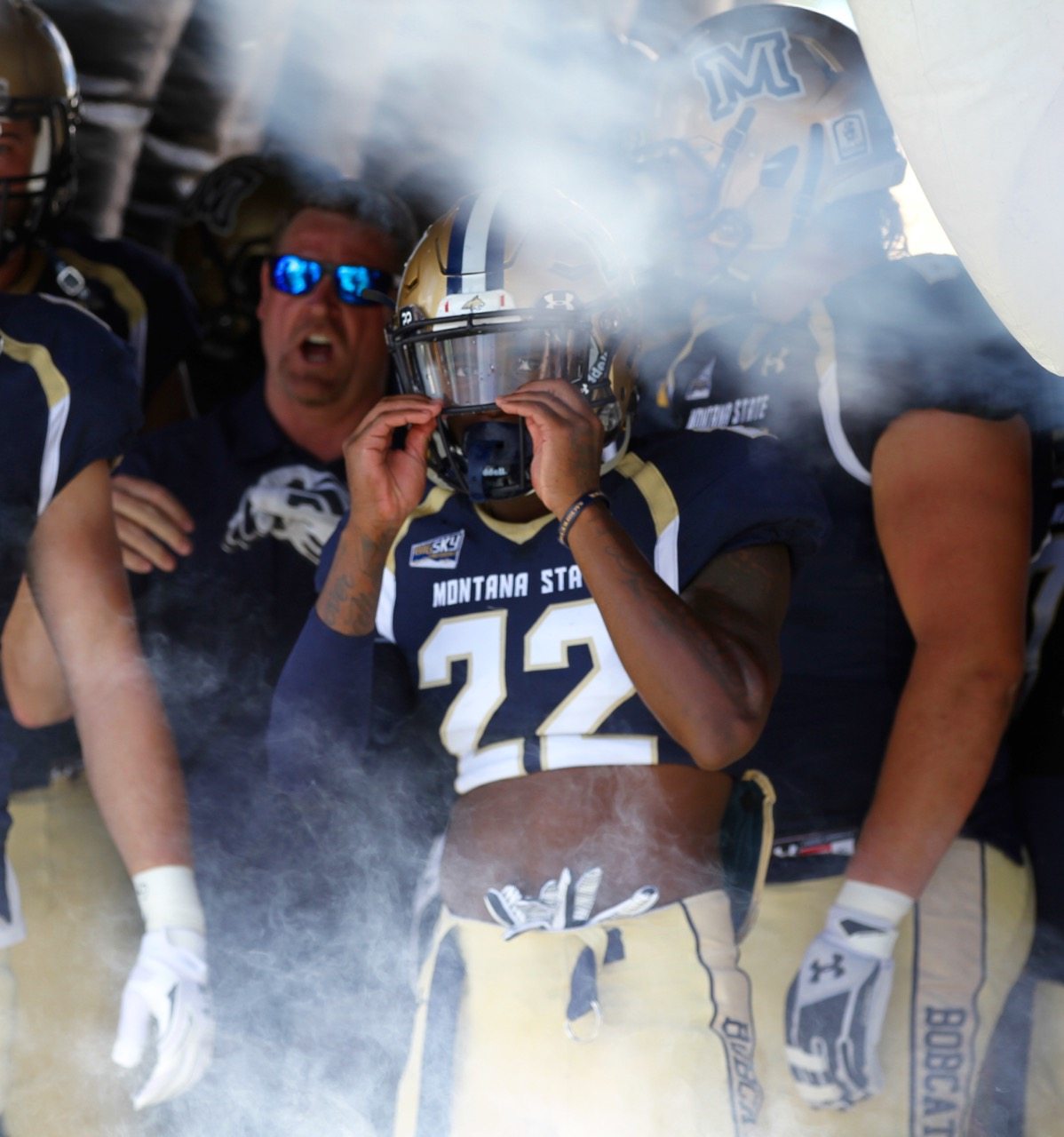 “It’s in the middle of the hood. Right outside our school was right in the projects,” Walker said. “We had to worry about people outside of the school trying to do something to us. People trying to take your shoes from you, your new Jordans. One of our homeboys got killed our senior year.
“It’s in the middle of the hood. Right outside our school was right in the projects,” Walker said. “We had to worry about people outside of the school trying to do something to us. People trying to take your shoes from you, your new Jordans. One of our homeboys got killed our senior year.
“You have to kiss your mom every time you walk out the house and tell her you love her because you don’t know when you ever going to see her again.”
Although Walker had no father in his daily life and he knew he could never touch the man from whom he inherited his name, he still talks to his dad almost every day from the prison phone. He said he has a closer relationship with his uncles, particularly Sutherland, because they remind him of his father. Those close to him ensure Walker never forgets where he came from.
Walker harbors dreams of joining Crawley in the NFL. He knows Saturday’s game, a contest in which he will be matched up with NFL hopeful EWU wide receivers Cooper Kupp and Kendrick Bourne, will be the toughest measuring stick he will have in the Big Sky this season.
The path he has walked from DC to Boulder to Bozeman has been filled with trials and triumphs. Walker has used his academic acumen and his athletic ability to emerge from circumstances that have stolen the souls of so many others. The experiences of his life, from sprinting to the train station through the ghetto as a teenager to learning to embrace life in unfamiliar communities, have molded him into the man determined to always sit on the free side of the glass.
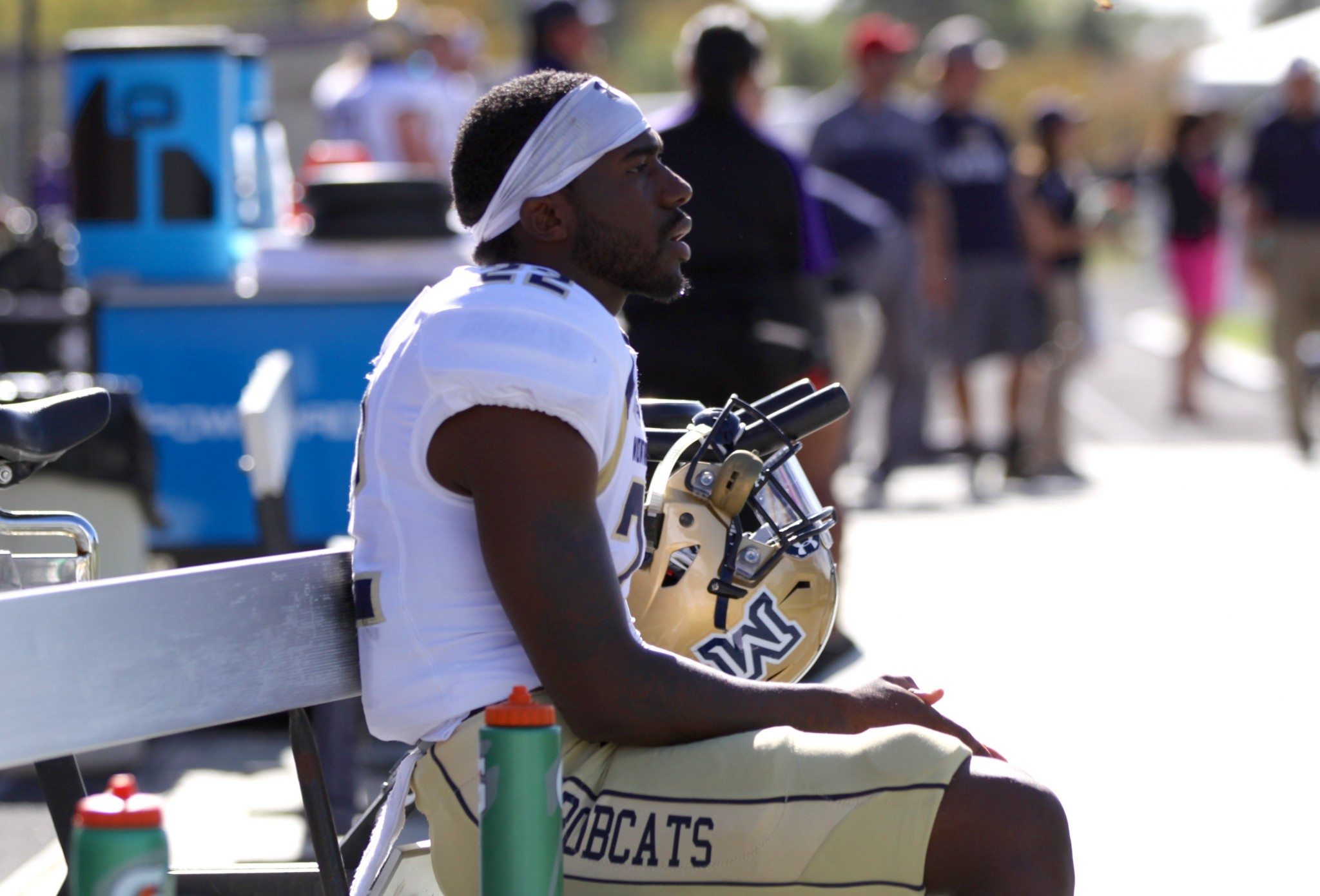 “I wouldn’t change where we come from or how we grew up for nothing because I think that shaped us and made us tough,” Walker said. “It made us learn how to go get things and stay away from the violence. Just as much as we was playing football and wasn’t participating in that, we could’ve easily slipped into the cracks. It’s right there. But we didn’t. We made it out alive.”
“I wouldn’t change where we come from or how we grew up for nothing because I think that shaped us and made us tough,” Walker said. “It made us learn how to go get things and stay away from the violence. Just as much as we was playing football and wasn’t participating in that, we could’ve easily slipped into the cracks. It’s right there. But we didn’t. We made it out alive.”
Photos by Brooks Nuanez. All Rights Reserved.

